A project to collect patient data in one place aims to better equip healthcare workers when making critical clinical decisions.
Led by Monash University Faculty of Information Technology and Eastern Health Clinical School, this important project will deliver live streams of clinical analytics and reporting information in clinical settings in the form of online dashboards.
These state-of-the-art dashboards will drive quality improvement, safety assurance and more efficient accreditation in a hospital setting.
Prof David Plunkett, Chief Executive of Eastern Health, said the project is the first of its kind in Victoria, with exciting potential for scalability.
“This project is led by our Executive Director of Information, Technology and Capital Projects, Zoltan Kokai. It will display streamed data on dashboards extracted from Eastern Health hospital systems,” Professor Plunkett said.
“Importantly, it will bring together the areas of clinical practice, technology and the very important requirement of accreditation, to proactively improve the quality and safety of how care is provided.”
Prof Peteris Darzins, Exec Clinical Director of Aged Medicine and Director of Geriatric Medicine at Eastern Health, added: “This is an exciting venture for clinicians and will facilitate and improve patient care in a timely manner.”
Neville Board, Victoria’s Chief Digital Health Officer said the project builds on investments in digitisation of health care in Victorian hospitals. Data fof the project will be drawn from Electronic medical records (EMR) and the Victorian Health Incident Management System (VHIMS).
“It’s essential we shift from manually collating clinical data. Digital technologies will empower our hospitals to provide real time data for clinical decision making and for accreditation against national standards set by the Australian Commission on Safety and Quality in Health Care,” Mr Board said.
Chris Bain, Professor of Practice in Digital Health at Monash University, says the project uses innovative technologies to address a pressing need in the healthcare sector for reliable, quick and easy-to-access data.
“The dashboards will combine data engineering techniques with user-friendly visualisations to surface key information from large data-sets,” said Professor Bain.
“These dashboards will enable clinicians to better understand the quality of care needed on a continuous daily basis, leading to improved quality standards, better patient care and overall support for clinicians.”
The implementation of the digital dashboards will benefit several key hospital areas, including:
-
Clinical governance
-
Preventing and controlling healthcare-associated infection
-
Medication safety
-
Comprehensive care
-
Blood management
-
Recognising and responding to acute deterioration

